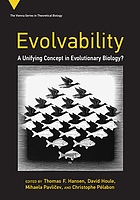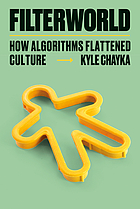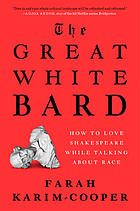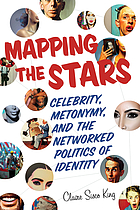Here is The Friday List! Every week, new books are arriving at RLB Library and to keep you up-to-date on what has come in, we’ll be posting the most recent 30 days of arrivals every Friday. The link below will take you to a catalog listing so that you can explore and find titles that interest you. Be sure to check back regularly to see what else has arrived!
THE FRIDAY LIST
If you want some ideas on what to read, here are some highlights, which can be found in the New Books kiosk by the information desk on the first floor of the library (eBooks can be accessed through the RLB website):

Evolvability : a unifying concept in evolutionary biology?, Edited by Thomas F Hansen et al., 2023
The present volume represents the outcome of a workshop on Evolvability hosted in 2019 – 2020 by the Center of Advanced Study (CAS) at the Norwegian Academy of Science and Letters in Oslo. This book gathers the efforts of many of the people that were instrumental in the development of the evolvability concept in different fields to synthesize what we have learned about evolvability during the past 30 years with a special focus on the historical and philosophical context that influenced the emergence of the concept and to develop a common language and theory to drive further evolvability research.

Filterworld : how algorithms flattened culture, Kyle Chayka, 2024
From New Yorker staff writer and author Kyle Chayka comes a timely history and investigation of a world ruled by algorithms, which determine the shape of culture itself. From coffee shops to rental apartments to social media posts the world round, a sleek and deceptively simple aesthetic has come to predominate. It’s in the neon signs and exposed brick of an Internet cafe in Nairobi or the skeletal, modern furniture of an Airbnb in Portland. These designs are easy to identify, but even more crucially, they photograph well. In their simplicity and studied airiness, these images fit seamlessly into the Instagram grid. But this aesthetic is only one small aspect of a broader program of curation that is determined by the algorithm–a network of mathematically determined choices that ramify into the development of city grids and music playlists alike. To have our tastes, behaviors, and emotions governed by computers, does nothing short of call the very notion of free will into question. Over the last decade, Kyle Chayka has studied the homogeneity of this curation of reality. Working as a contributor for The New Yorker, The New York Times Magazine, and The New Republic, he has traveled to Berlin, Reykjavik, and Los Angeles tracing the algorithm’s lineage. In Filterworld, Chayka lucidly examines how this deeply filtered aesthetic–spanning digital and physical spaces–creates an uncanny blend of work, home, and social life. As the algorithm determines our choices, other important questions arise: What happens when shareability supersedes messiness, innovation, and creativity–the very nature of being human? What does the notion of choice mean when the available options have been so carefully arranged for us? Filterworld offers a way out. Kyle Chayka shows us how to disconnect from the tyranny of the algorithms that continue to override our sensibilities, and inform even our most intimate, real-world interactions. Most importantly, he shows us how to reclaim our individual freedom.

The great white bard : how to love Shakespeare while talking about race, Farah Karim-Cooper, 2023
As we witness monuments of white Western history fall, many are asking how is Shakespeare still relevant? Professor Farah Karim-Cooper has dedicated her career to the Bard, which is why she wants to take the playwright down from his pedestal to unveil a Shakespeare for the twenty-first century. If we persist in reading Shakespeare as representative of only one group, as the very pinnacle of the white Western canon, then he will truly be in peril. Combining piercing analysis of race, gender and otherness in famous plays from Antony and Cleopatra to The Tempest with a radical reappraisal of Elizabethan London, The Great White Bard asks us neither to idealize nor bury Shakespeare but instead to look him in the eye and reckon with the discomforts of his plays, playhouses and society. In inviting new perspectives and interpretations, we may yet prolong and enrich his extraordinary legacy.

Mapping the stars : celebrity, metonymy, and the networked politics of identity, Claire Sisco King, 2023
Often dismissed as trivial or even “trash,” celebrity culture offers a unique way of considering what it means to be human. In Mapping the Stars, Claire Sisco King shows how close analysis of the complex and sometimes contradictory forms of celebrity culture can challenge dominant ideas about selfhood. In particular, as a formation that develops across time, mediums, and texts, celebrity is useful for demonstrating how humanness is defined by relationality, contingency, and even vulnerability. King considers three stars with popular and controversial personas: Norman Rockwell, Will Smith, and Kim Kardashian. Working in very different contexts and with very different public images, these figures nonetheless share a consistent, if not conspicuous, interest in celebrity as a construct. Offering intertextual readings of their public images across such sites as movie posters, magazines, cinema, and social media—and deploying rhetorical theories of metonymy (a linguistic device linking signifiers by shared associations)—King argues that these stars’ self-reflexive attention to the processes by which celebrity is created and constrained creates opportunities for reframing public discourse about what it means to be famous and what it means to be a person.